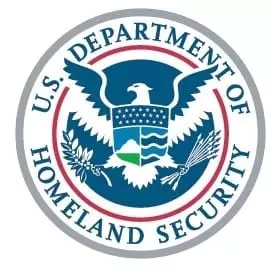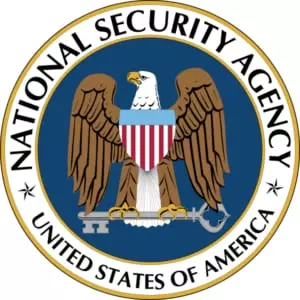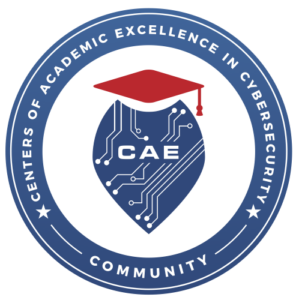

Mountain Empire Community College has been accredited jointly by the National Security Agency and the U.S. Department of Homeland Security as a National Center of Academic Excellence in Cyber Defense (or CAE-CD).
The accreditation is awarded only to U.S. four-year and two-year colleges that demonstrate a proven ability to deliver quality Cybersecurity education to their students while meeting standards related to curricula and faculty. With this distinction, MECC becomes only one of nine Virginia community colleges (out of 23) to carry the accreditation. Of the 84 public and private colleges in Virginia, only 25 percent of them hold the accreditation.
“National Security Agency and U.S. Department of Homeland Security recognition as a National Center of Academic Excellence in Cyber Defense signifies that MECC has created a strong Cybersecurity educational program producing the technology talent necessary to fill positions in Cybersecurity within our region as well as attracting new businesses requiring this talent to the region,” said MECC President Kristen Westover.
As a CAE-CD institution, MECC is now eligible for federal funding opportunities reserved only for CAE-CD colleges. Other incentives offered include virtual student job fairs and special training seminars for faculty. Lastly, MECC’s CAE-CD status confirms a Cybersecurity curriculum deemed worthy by some of the nation’s largest employers like the NSA and the U.S. Department of Defense.
MECC Assistant Professor Ritchie Deel, who serves as both the college’s Cybersecurity professor and its Interim Director of Information Technology, expressed that the accreditation represents both MECC’s diligence in developing its Cybersecurity program since 2016 and the overall effort by colleges in Southwest Virginia to attract technology companies to the region.
“We started our Cybersecurity program back in 2016 with grant funding backed by the Appalachian Regional Commission and the Tobacco Region Revitalization Commission, and since then, we’ve made sure to leverage that opportunity by building a program that signals that there is technology talent in Southwest Virginia for those companies that are interested in the area.” Deel said.
Since the creation of MECC’s Cybersecurity Career Studies certificate program in 2016, MECC has formed a student competition club that participates in national Cybersecurity-based tournaments and has collaborated with regional colleges like the University of Virginia’s College at Wise and Southwest Virginia Community College to organize technology-themed events.
MECC offers a 10-course Cybersecurity Career Studies Certificate that can be taken on its own or paired with the college’s Computer Networking and Computer Software Specialist degrees. Those interested in learning more about the program should contact Mr. Deel at 76-523-9444 or at rdeel@mecc.edu.
Mountain Empire Community College’s “Capture the Flag” (CTF) team, comprised of Cybersecurity students, has placed second out of all Virginia community colleges and 18th out of 185 teams in the nation at two recent competitive events.
MECC’s CTF team for these events were students Macarthur Inbody (captain), Staci Fraley, Danielle Lamb, Noah Sturgill, Nathaniel Mullins and Shane Strong. Assistant Professor Ritchie Deel, who oversees MECC’s Cybersecurity program, served as faculty mentor.
The team participated in two recent national CTF competitions—Radford University’s “RUSecure” competition and the National Cyber League’s (NCL) “Spring Season” contest. In the RUSecure event, MECC placed ahead of all other teams in the Southwest Virginia bracket, finishing second out of all Virginia community colleges and 18th out of 185 teams nationally. As a result, MECC was one of 30 teams invited to Radford’s campus to compete in the final “championship round” that was to be held in early April. Unfortunately, that event was canceled due to the COVID-19 pandemic.
In the NCL individual competition, held April 3 – April 5, Inbody placed in the 92nd percentile (out of 657 participants) in the tournament’s highest “Gold” bracket. Fraley placed in the 76th percentile (out of 1,536 participants) in the “Silver” bracket and Sturgill competed in the “Bronze” bracket. Bracket assignments were based on each student’s performance in preliminary rounds.
CTFs are competitions that test teams’ ability to solve challenges that relate to the Cybersecurity industry. With each challenge solved, a team acquires a “flag,” and the team with the most flags by the end of a competition is named the winner.
CTFs are becoming more common throughout the country as the Cybersecurity industry expands rapidly, and employers often use them to find and recruit talent. Both the RUSecure and NLC events were open to all high school and college teams in the country, and their online formats allowed competitors to participate from their homes provided they had access to a computer and a working internet connection.
MECC offers a Cybersecurity Career Studies Program that can be completed in one year. Those interested in enrolling in the program should contact Ritchie Deel at 276.523.9444.
MECC’s “Capture the Flag” (CTF) team has advanced to the final round of Radford University’s annual “RU Secure” national CTF competition. The “redFoxes” achieved the highest score of any college or high school in the Southwest Virginia category, qualifying them for the competition’s final round per contest rules. Overall, the team finished 18th out of 185 competing teams, and they also finished ahead of all but one VCCS college. CTFs are online challenges that test teams’ ability to solve challenges that relate to the Cybersecurity industry. With each challenge solved, a team acquires a “flag,” and the team with the most flags by the end of the competition is named the winner. CTFs are becoming more common throughout the country as the Cybersecurity industry expands rapidly, and employers often use them as way to assess and recruit talent.
The MECC “redFoxes” are comprised of MECC students Macarthur Inbody (captain), Danielle Lamb, Noah Sturgill, Nathaniel Mullins, and Jonathan (Shane) Strong. The team is coached by Associate Professor Ritchie Deel. MECC is proud to support the “redFoxes” as they prepare for the championship round that will take place online in April (original plans to hold the competition onsite at Radford University have been amended due to national health concerns).
Mountain Empire Community College is looking for students to compete in the National Cyber League (NCL), an online competition that consists of a series of challenges that allow students to demonstrate their ability to identify hackers from forensic data, audit vulnerable websites, recover from ransomware attacks, and more. Students that have taken ITN 260 and ITN 261 will feel most comfortable with the material. Additional information can be found at www.nationalcyberleague.org. If interested, please contact Ritchie Deel (rdeel@mecc.edu) by March 10 so that they can register you. There are only eight slots available for this event.
MECC’s “Capture the Flag” (CTF) team finished 12th out of 326 competing teams from universities and high schools across the country in Radford University’s annual “RU Secure” CTF competition. CTFs are online challenges that test teams’ ability to solve challenges that relate to the Cybersecurity industry. With each challenge solved, a team acquires a “flag,” and the team with the most flags by the end of the competition is named the winner. CTFs are becoming more common throughout the country as the Cybersecurity industry expands rapidly, and employers often use them as way to assess and recruit talent.
The “redFoxes” team is comprised of MECC students Macarthur Inbody (captain), Danielle Lamb, Noah Sturgill, Nathaniel Mullins, and Jonathan (Shane) Strong. The team is coached by Assistant Professor Ritchie Deel. MECC is proud to support the “redFoxes” in its quest to finish among the top seven teams (qualifying round in March 2020) so that they can earn a spot in the final round, held on Radford’s campus, in April 2020.
On Thursday, October 24, MECC Cybersecurity and software development students competed in UVa-Wise’ second annual BSides Capture the Flag competition, a computer-based individual competition that tests participants ability to problem-solve with regards to information technology and security. MECC students Macarthur Inbody and Noah Sturgill were two of three competitors who tied for 1st place. In addition, Danielle Lamb, Jonathan (Shane) Strong, and Noah Moneyhun respectively earned 3rd, 4th, and 5th place out of a field of over 60 participants. MECC would like to congratulate these students and all other participating MECC students for their success and hard work during this event. Also appreciated is the dedication of MECC faculty Terri Lane and Ritchie Deel, who served as faculty mentors for this competition.

